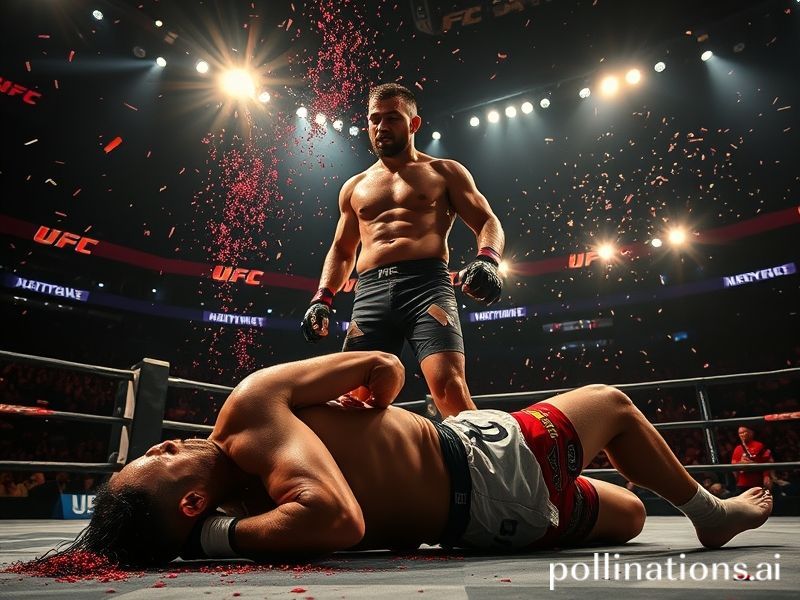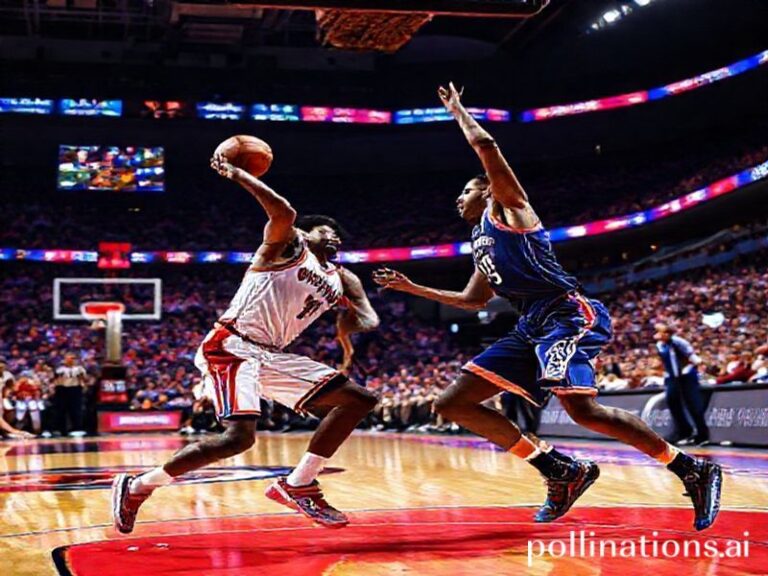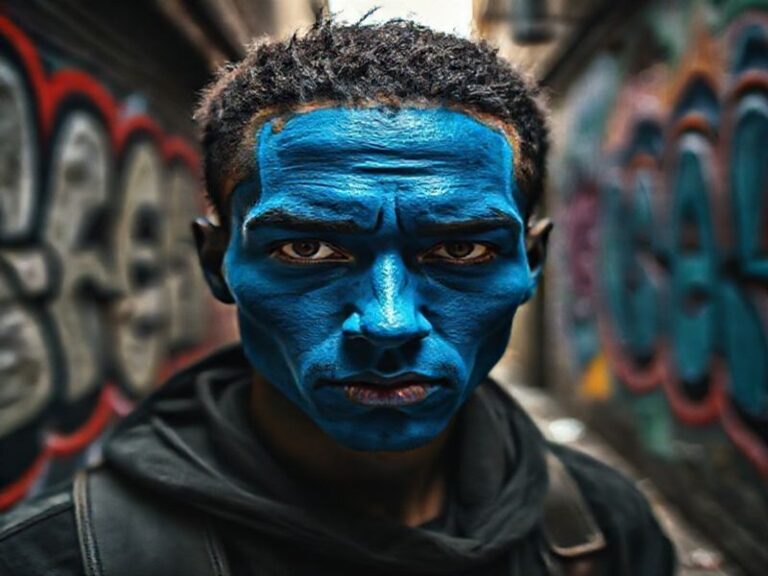UFC 320: How a Cage Fight in Vegas Just Replaced the UN Security Council
UFC 320: When the Octagon Becomes the World’s Most Honest Diplomatic Channel
Dave’s Locker International Desk | São Paulo → Las Vegas → Riyadh
By the time the blood had dried on the canvas at UFC 320, three continents had already filed diplomatic cables about the main event. Not because the Dagestani champion had delivered another geopolitical elbow, but because every government on earth suddenly remembered that sanctioned violence is the one export every nation can agree on—provided the pay-per-view split is generous enough.
The card itself was the usual carnival of human ambition and orthopedic risk. In the co-main, a polite Canadian doctor—yes, an actual ringside physician moonlighting as a fighter—submitted a Brazilian jiu-jitsu legend while simultaneously diagnosing him with a partial ACL tear between rounds. Somewhere in Brussels, the European Medicines Agency updated its conflict-of-interest guidelines in real time.
But the global resonance came from the headliner: a welterweight title bout pitting the United States’ favorite corn-fed wrestler against China’s first home-grown UFC champion, a man whose nickname, “The State Asset,” was reportedly focus-grouped by the same agency responsible for Belt and Road memes. When the American tapped to a third-round guillotine, Chinese state television cut to a montage of pandas doing tai-chi while stock footage of container ships spelled out “Soft Power Delivered.” Twitter, meanwhile, collapsed under the weight of 400,000 Americans claiming they could have lasted longer because they once did high-school wrestling in Ohio.
The fight’s ripple effects were immediate and absurdly geopolitical. The U.S. State Department issued a statement praising “the spirit of athletic competition,” a phrase that roughly translates to “we still have nukes, calm down.” The Chinese delegation responded by gifting every journalist a commemorative kettlebell engraved with supply-chain statistics. Somewhere in the Kremlin, Vladimir Putin reportedly asked why Russia hadn’t thought of weaponizing cauliflower ear first.
Financial markets, ever the barometer of human anxiety, reacted with characteristic lucidity: shares in Monster Energy spiked, Boeing dipped (nobody trusts a country that loses at cage fighting), and a little-known Kazakh start-up that 3-D prints replacement ACLs tripled in value. Crypto bros tried to mint a “GuillotineCoin,” but it immediately forked into two rival chains arguing over which choke was more technically pure.
Europe, ever the moral compass of the spectacle, held an emergency session in Strasbourg on whether knockouts constitute cultural appropriation of medieval jousting. The motion failed after the French delegate admitted he’d bet his entire expense account on the Dagestani undercard. Meanwhile, the International Olympic Committee, watching its own relevance evaporate faster than a Vegas ice sculpture, floated the idea of adding “strategic cage diplomacy” to the 2032 Brisbane program, provided athletes wear national-flag mouthguards and sign a waiver in triplicate.
Back in the arena, the post-fight press conference achieved the rare feat of making the United Nations look efficient. A journalist from Reykjavík asked if climate change had improved cardio by thinning the air; a Saudi media boss inquired about hosting UFC 400 in a purpose-built octagon under a retractable pyramid; and an Australian reporter demanded to know why the pay-per-view blackout had lasted exactly 37 seconds—long enough, he noted, for every bar in Sydney to riot. UFC President Dana White, wearing a grin that suggested he’d just sold the broadcast rights to the International Space Station, replied, “I run a global peace summit with elbows. You’re welcome.”
And perhaps that’s the bleakly hopeful takeaway: in a world where trade wars are fought with microchips and actual wars are live-tweeted, the octagon remains refreshingly honest. Two humans enter, one leaves with a belt and a concussion, and everybody else gets to pretend the outcome explains something profound about their national character. Until UFC 321, when the next batch of flag-draped gladiators steps in to settle whatever Twitter spat passes for diplomacy these days, we can all agree on one universal truth: nothing unites humanity quite like the prospect of someone else getting punched in the face for our entertainment.







